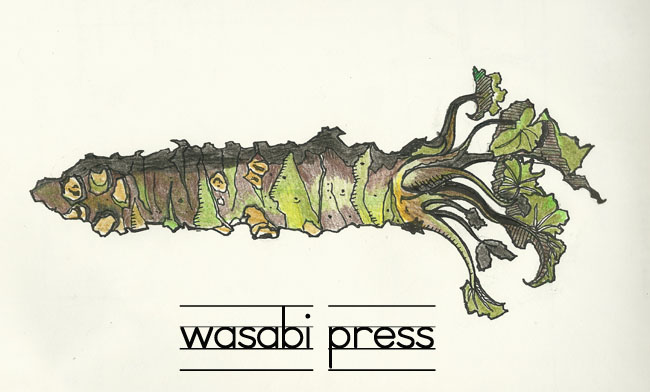
This article originally ran in the Los Angeles Japanese American paper, the Rafu Shimpo, on Friday, February 11, 2011. My gratitude to JK Yamamoto (Hisaye's nephew and long-time community journalist) for so generously including me in this.
Another outstanding tribute to Hisaye was published in the Los Angeles times here.
Hisaye Yamamoto "Humble Giant of American Literature"- Rafu Shimpo
The passing of short-story writer and essayist Hisaye Yamamoto is being mourned by her friends and fans across the country and beyond. The author of “Seventeen Syllables and Other Stories” died in Los Angeles on Jan. 30 at the age of 89.
Filmmaker Emiko Omori, who combined Yamamoto’s short stories “Seventeen Syllables” and “Yoneko’s Earthquake” in the 1991 film “Hot Summer Winds”:
“Hisaye was my first babysitter, and throughout the following years I was not good at keeping in touch. But she was always in my heart. She allowed me to make a movie from two of her wonderful short stories. She agreed to be in a documentary, ‘Rabbit in the Moon,’ that my sister, Chizu, and I made about our internment experiences. She loved to play Scrabble and she always won. She had a beautiful way with words. I miss you, dear Hisaye—my inspiration, my mentor.”
Chizu Omori, co-producer of the 1999 documentary “Rabbit in the Moon” and columnist for the Nichi Bei Weekly:
“I feel I have lost a great mentor and a very good friend in the passing of Hisaye Yamamoto. I first met her before World War II when I was a kid. We went through the camp experience living in the same block, and she was someone I could always talk to during that stressful experience.
“After the war, we never did live in the same town but kept up a correspondence that went on until she could no longer write. She was one of the first Japanese American women who gained a national presence with her short stories and writings, and she was a master storyteller of the Japanese American experience. She was an inspiration for many of us.”
Janice Mirikitani, former poet laureate of San Francisco and founding president of the Glide Foundation, which empowers poor and marginalized communities:
“Hisaye was my shero. She is the writer who gave me the courage to reveal my stories, to unleash my voice as a poet and activist. I remember her stories of madness, love, suffering and comedic moments, and compassion in camp. Her sense of humor and sensitivity, her amazing insight into human beings of all ethnicities helped create stories that were the ground for our connecting to the human condition beyond borders and boundaries.
“She made me proud to be Japanese American and a woman.”
Cynthia Kadohata, author of the award-winning children’s books “Kira-Kira” and “Weedflower”:
“For me, Hisaye was like a star in the sky—she made me dream about what was possible.”
Professor King-Kok Cheung of UCLA, author of “Articulate Silences: Hisaye Yamamoto, Maxine Hong Kingston, Joy Kogawa” and editor of “Seventeen Syllables,” a collection of literary critiques of Yamamoto’s work:
“No contemporary writer has touched my heart, mind, and spirit as much as Hisaye Yamamoto. Whether writing about aborted creativity (‘Seventeen Syllables’), doomed romance (‘Epithalamium’), the dubious norms for sanity and insanity (‘The Legend of Miss Sasagawara’ and ‘Eucalyptus’), the havoc wrought by addictive gambling (‘The Brown House’ and ‘Las Vegas Charley’), or the debilitating effect of racism (‘Wilshire Bus’ and ‘A Fire in Fontana’), she did so with abiding compassion, keen eyes, wry humor, and prose that is at once disarming and harrowing.”
Minoru Kanda of Ajiakei-Amerikajin Bungaku Kenkyu Kai, which promotes the study of Asian American literature in Japan, and Japan representative of Asian Improv Records, an Asian American jazz label:
“We had a discussion about Hisaye-san’s works, ‘A Fire in Fontana’ as well as ‘Eucalyptus,’ just a few days ago. There is a larger number of Japanese people who read and respect Hisaye Yamamoto’s stories. Her works are so important not only for the U.S. readers but also for us Japanese.”
Kent A. Ono, a professor of media and cinema studies and Asian American studies at University of Illinois:
“When I first began writing my dissertation, it was Hisaye Yamamoto’s courageous words that brought the soul of Japanese America to me through writing. They gave me perspective, insight, feeling, and depth. She continues to be my ethical and moral guide. What she did with language astounds me daily.”
Playwright Philip Gotanda (“Sisters Matsumoto,” “Ballad of Yachiyo”) and actor-producer Diane Takei:
“Hisaye Yamamoto was truly one of the pioneers of Asian American literature. Because of her work and her presence, we along with many others had a strong literary foundation upon which to build. The world will miss Hisaye Yamamoto.”
Naomi Hirahara, author of the Mas Arai mystery series and former English editor of The Rafu Shimpo:
“Hisaye Yamamoto has been an inspiration to me ever since I was introduced to her work in my early twenties. She was a former journalist, a Christian, small in stature and a resident of the greater Pasadena area (Eagle Rock)—I felt personally connected to her in many ways. But her writing, as powerful and direct as a bullet, her prose so descriptive and unwavering, I knew that she was a true literary master.
“The Japanese American community and all Americans are so lucky that Hisaye toiled and wrote her stories about the time before camp, during camp and after. When I worked at The Rafu Shimpo, I was fortunate to have some telephone dealings with her regarding her submissions to our Holiday Issue and she remained as she always did in person—self-effacing and no nonsense.
“She had little consciousness of her literary importance, which sometimes surprised me because her work among Japanese American writers in particular was held in such high esteem. I knew that she was one of the first Japanese Americans to be published by the Paris Review, but the first anthology of her short stories was not published in the U.S., but in Japan.
“Hisaye—I still feel—doesn’t have the fame that she deserves in this country, but I hope that many of us will continue to spread the word of her writing and that more collections will be published posthumously. An important part of Hisaye will live on in her short stories. I am absolutely sure of that.”
Stan Yogi, co-author of “Wherever There’s a Fight: How Runaway Slaves, Suffragists, Immigrants, Strikers, and Poets Shaped Civil Liberties in California” and co-editor of “Highway 99: A Literary Journey through California’s Great Central Valley” and “Asian American Literature: An Annotated Bibliography”:
“For more than half a century, Hisaye Yamamoto quietly chronicled American life in her exquisitely crafted and powerful stories and essays. She described herself as a housewife, not a writer. But anyone who reads her work will recognize the talents and skills of a true literary master.
“With insight, compassion, wit, and grace, she wrote about sensitive Issei women whose dreams are thwarted and Nisei children who do not fully understand their parents’ aspirations. The empathetic vision of her fiction and memoirs encompassed alcoholics seeking redemption through love and religion, and African Americans targeted by racism.
“When young admirers sought her inspiration and advice about writing, she encouraged their efforts but downplayed her own significance as a writer, instead praising the talents of other authors.
“But Hisaye Yamamoto’s body of work is lasting proof of her literary gifts, which luckily she shared for most of her life. We have lost a pioneer and humble giant of American literature … who also happened to be a housewife.”
Patricia Wakida, associate curator of history at the Japanese American National Museum and former director of special projects at Heyday Books:
“Like so many of her admirers, I only knew and loved Hisaye Yamamoto from afar, and through her writing. Hisaye’s prophetic voice, tempered by a tremendous wit and intelligence, spoke so much of the unspoken in the Japanese American experience, both pre-war and during the WWII incarceration.
“The discovery of ‘Seventeen Syllables and Other Stories’ was a personal epiphany. Reading that book sent me tumbling into the lives of Nisei girls and women who were so dark and complex, so gilded with these intense, emotional threads, that they left me locked in those stories for decades. It was as if I were privy to the innermost secrets of these women, and by the end of each story, rather than neatly bringing their conflicts to an easy resolution, were left open and mysterious.
“It wasn’t until later that I learned about the defiant and courageous way she went about making her mark in this world, in particular through the vehicles she chose to affiliate with and publish, which only increased my admiration.
“Fearless and eloquent, Hisaye Yamamoto was one of the great writers of her time and has left us with a tremendous legacy to remember her by.”
Elaine Kim, Asian American studies professor at UC Berkeley and co-editor of “Making Waves: Writing by and About Asian American Women” and “Making More Waves: New Writing by Asian American Women”:
“She was so—so JA! By that I mean she had that very tranquil-seeming surface and she didn’t say much, but her writing revealed the spunky, quirky, keenly observant, spicy spirit that was burning beneath.
“Her stories were like that, too. There’d be a cheerful, kind of glibly clueless child narrator dropping hints of dangerous secrets lurking somewhere out of sight while she prattled on—adultery, abortion, suicide, madness—and everything that makes those things happen in human life, including love and desire and also patriarchy and racism.
“Ever modest, ever insisting that she didn’t have much to say or offer, I remember her on a panel once when she must have been in her 60s. She was in front of a huge audience that was paying adoring tribute to her and her work. Casually dressed in a white T-shirt and a black vest and khaki slacks, she spoke evenly in low tones, not letting on that she was moved or affected in the slightest by all that adulation.
“But I was sitting next to her, and I felt her elation and noticed the sparkle in her eyes. They loved her so much, and I think she was very happy. She was a great writer and a great person. We will really miss her.”



3 comments:
Wah !! Its really an interesting one..Thanks for sharing !!! webhosting
Thanks for turning me on to her. It seems all the new (to me) writers I hear about these days come before me through an obituary.
I'm happy I found this article,its great!
Web hosting
Post a Comment